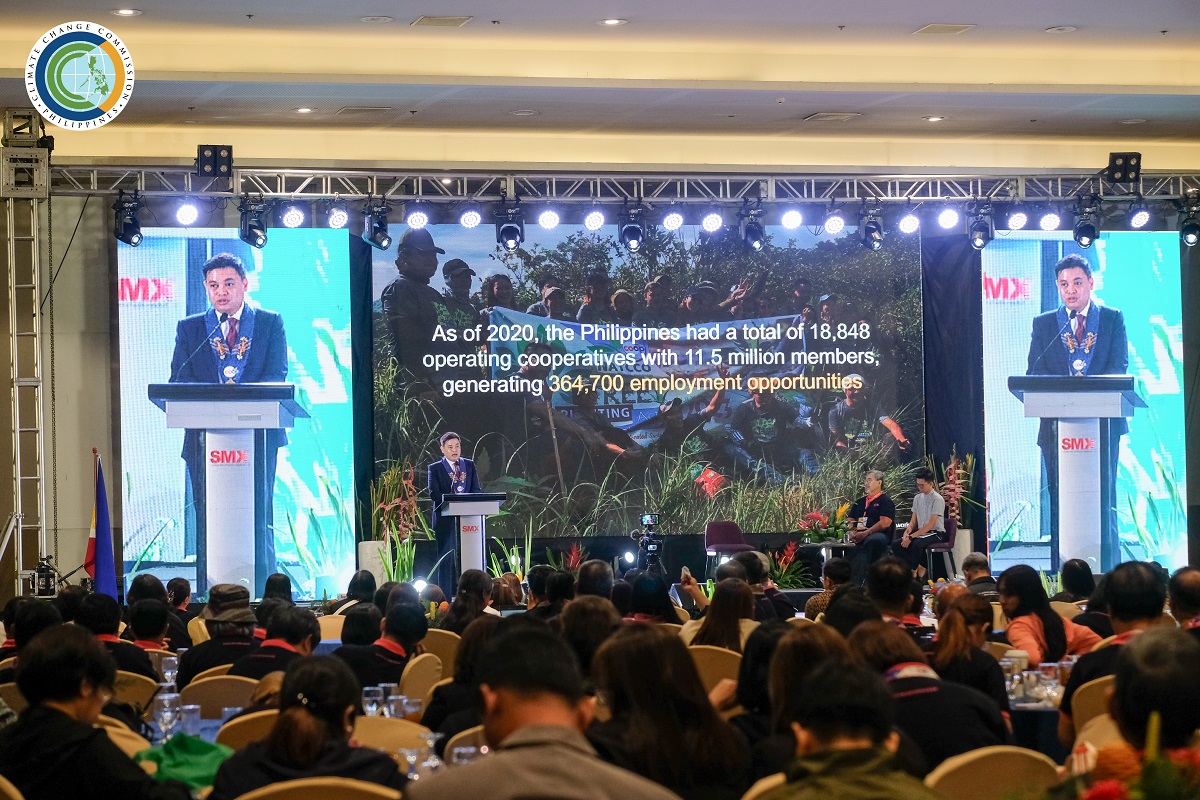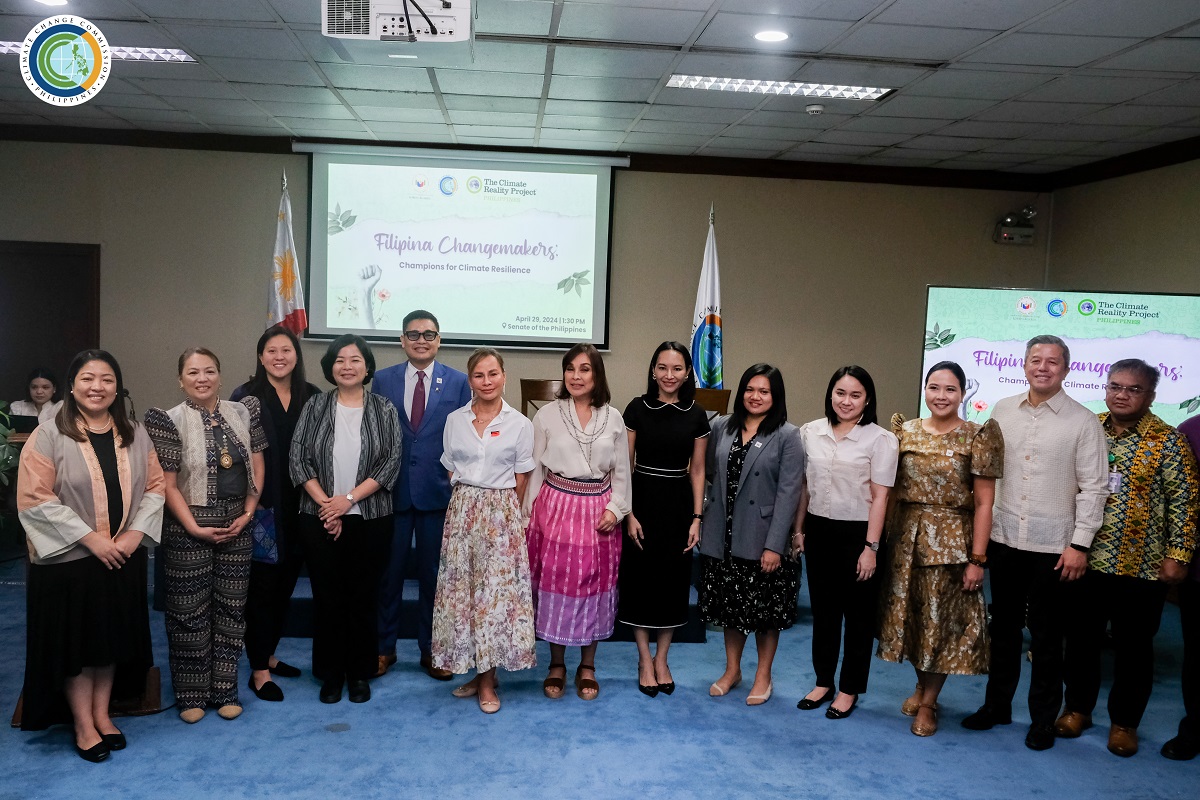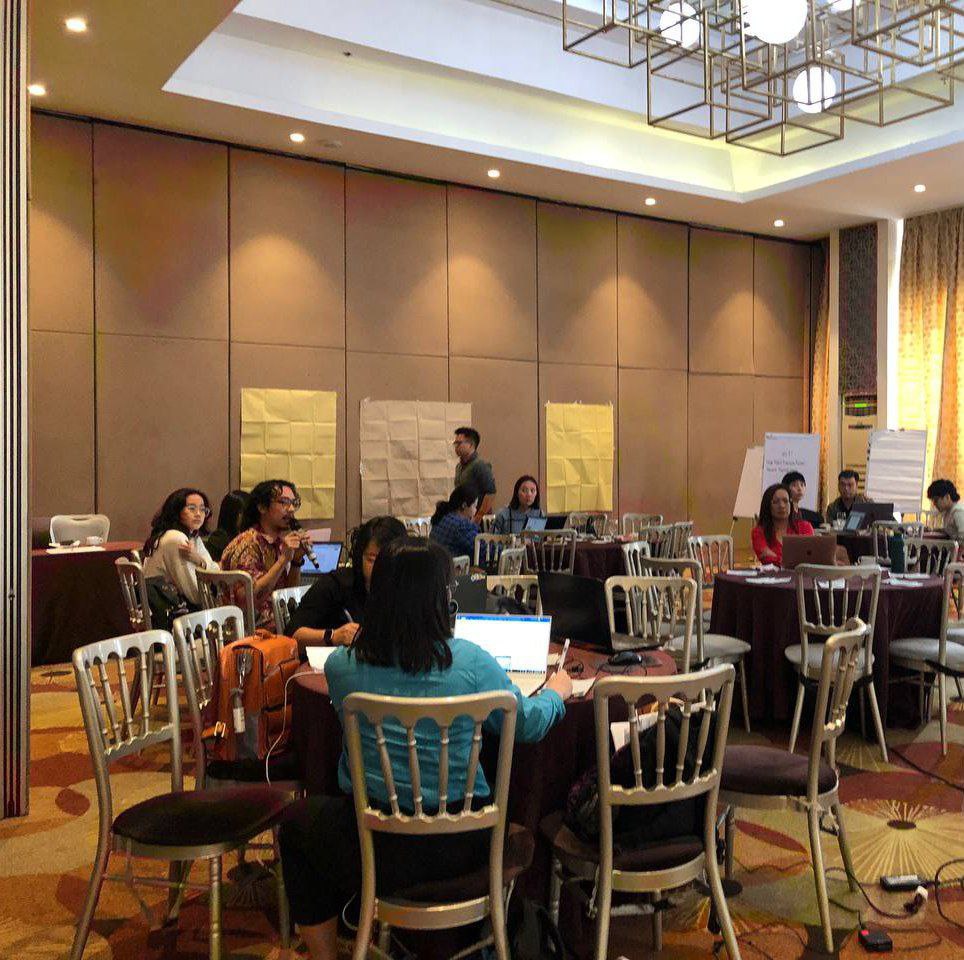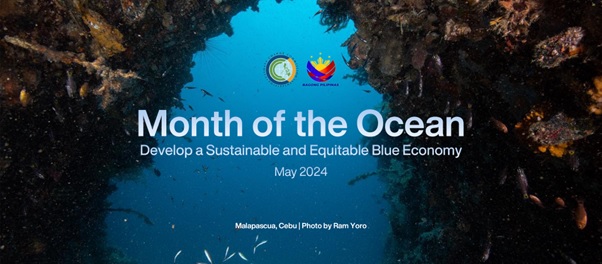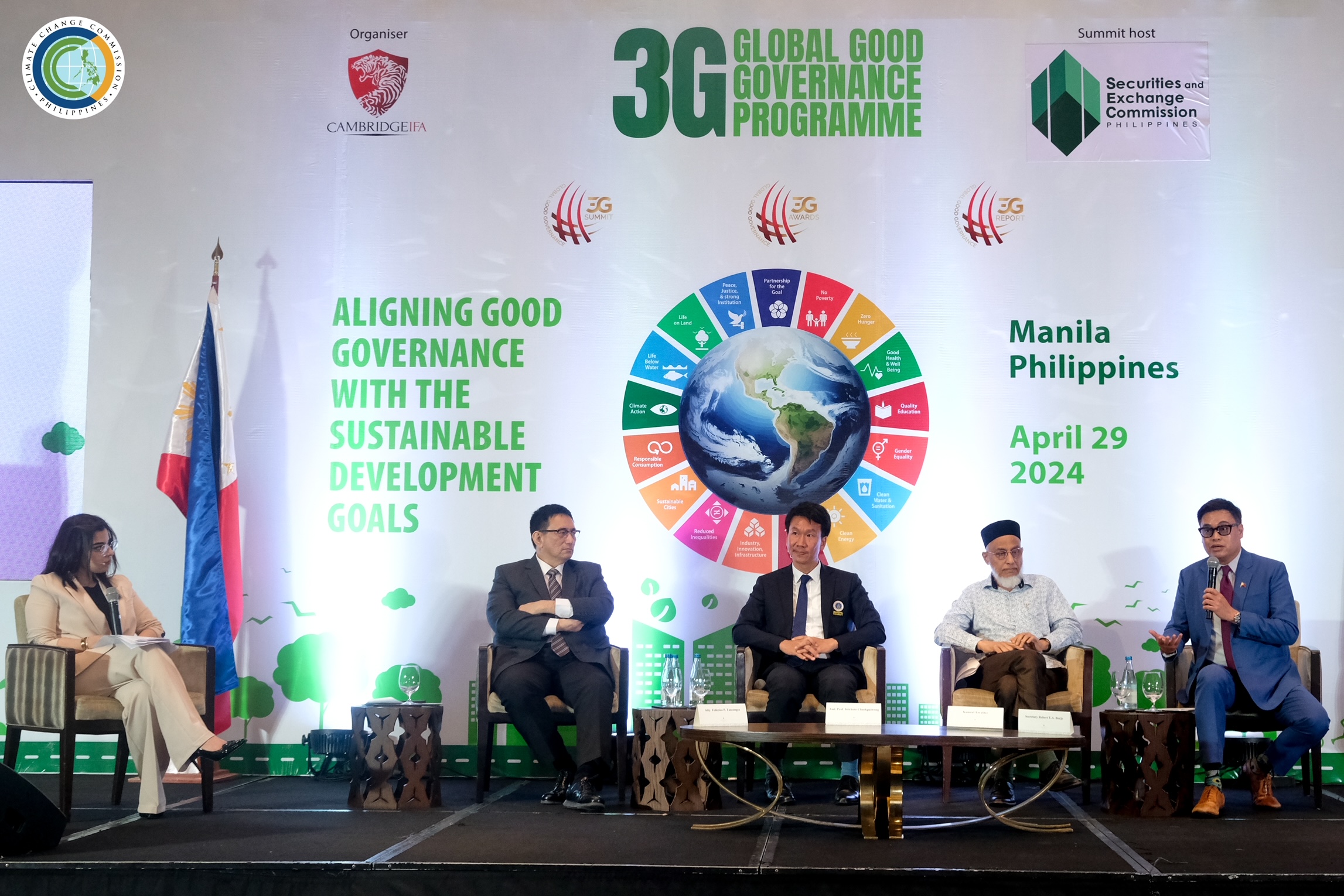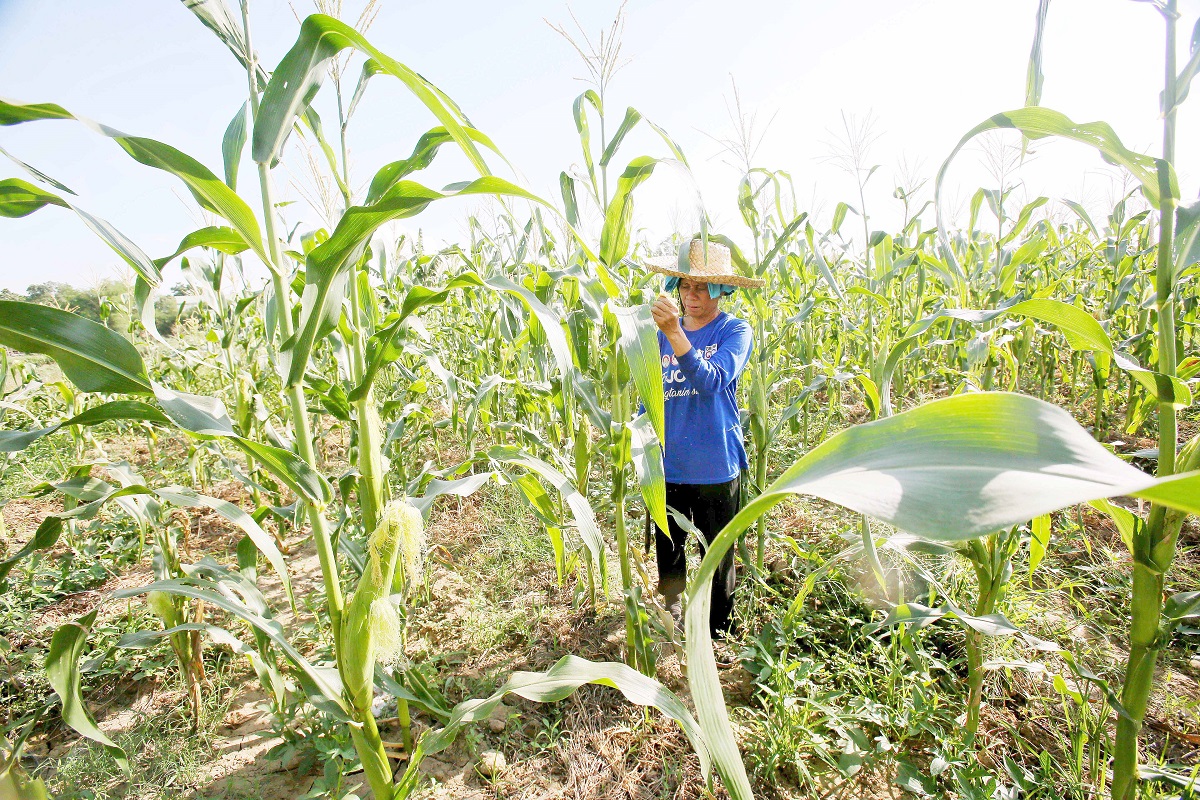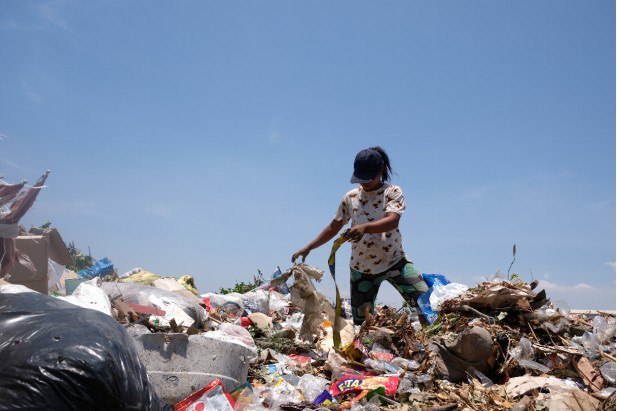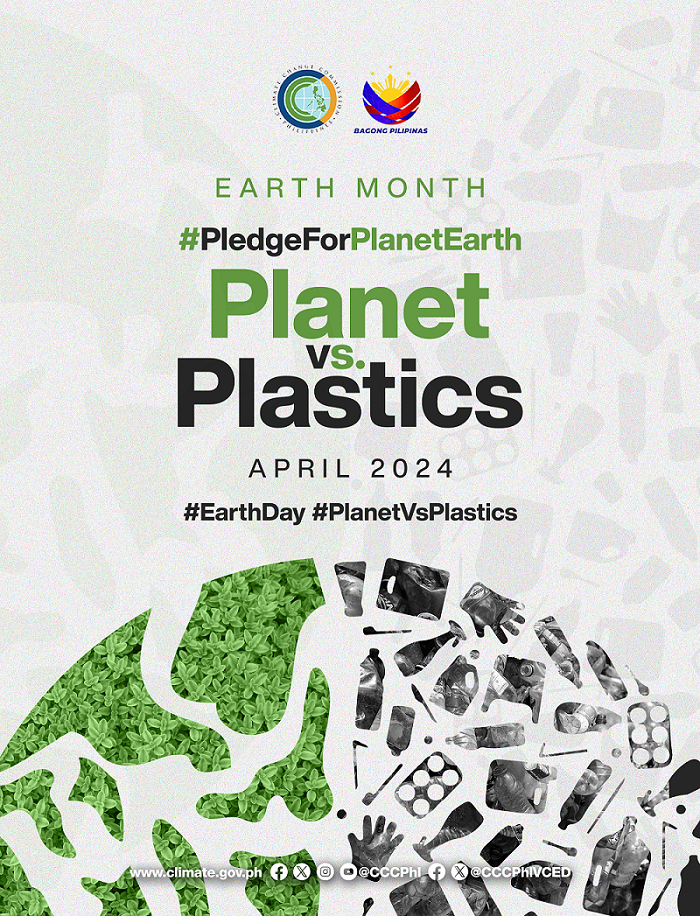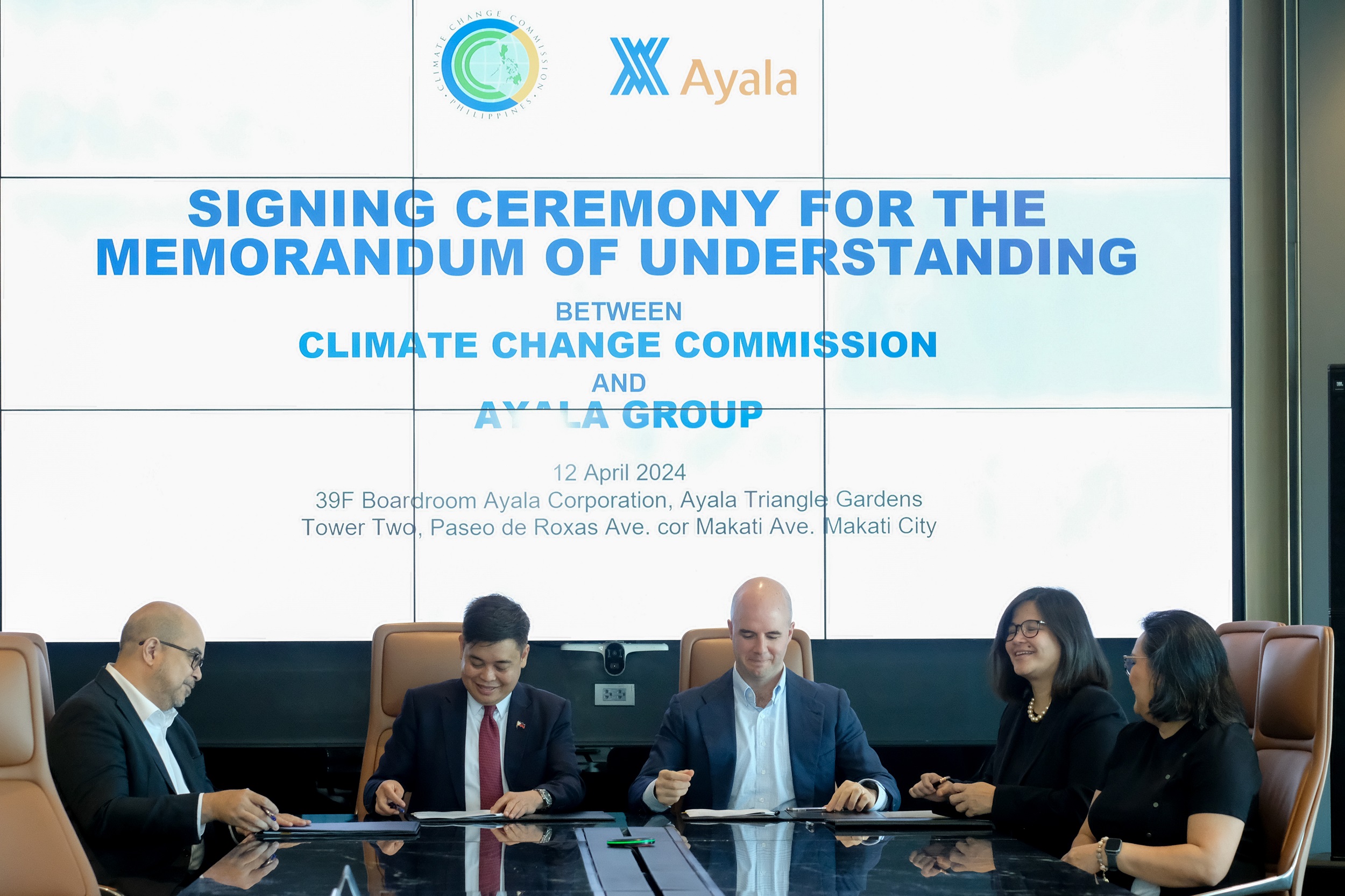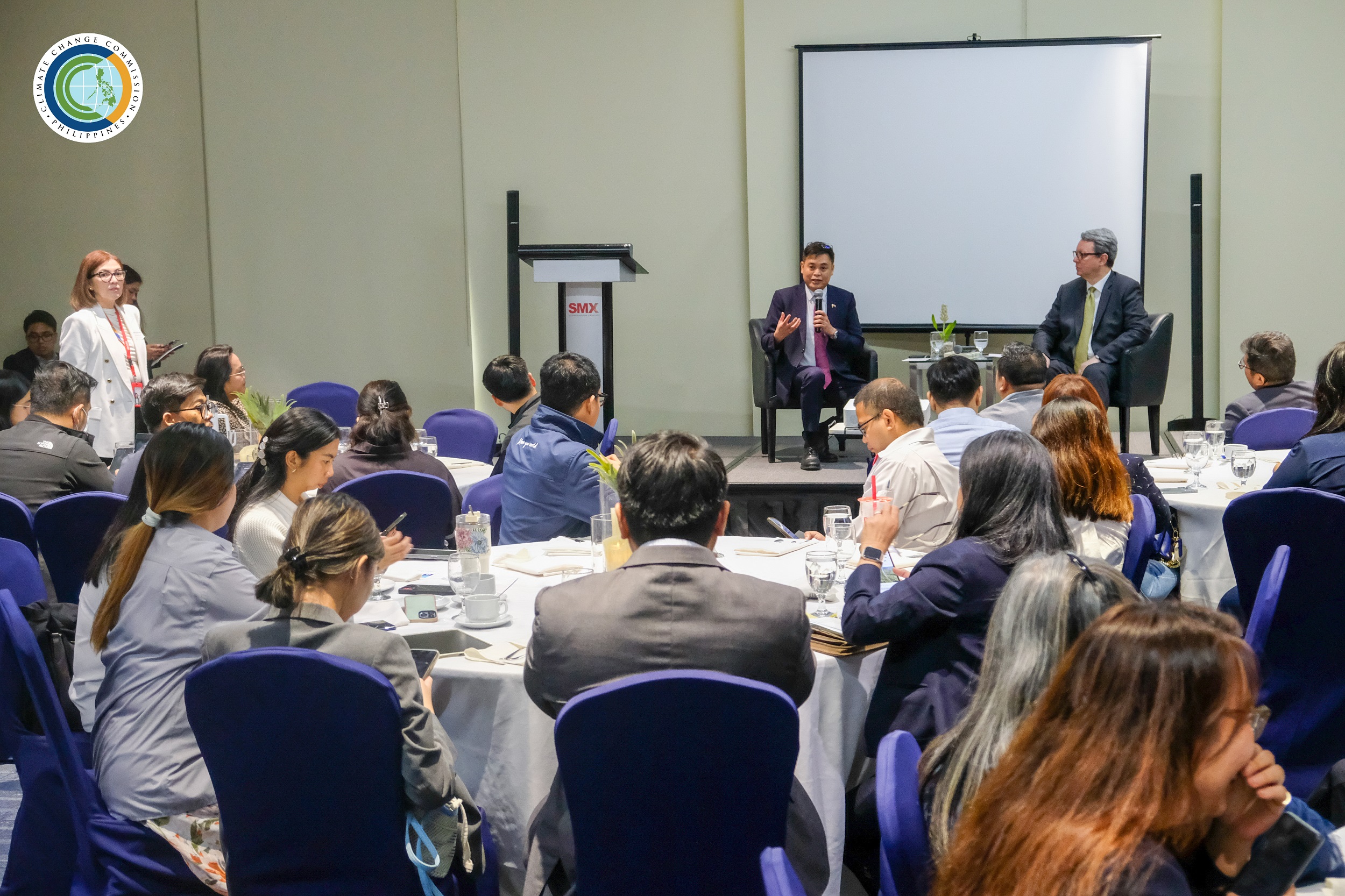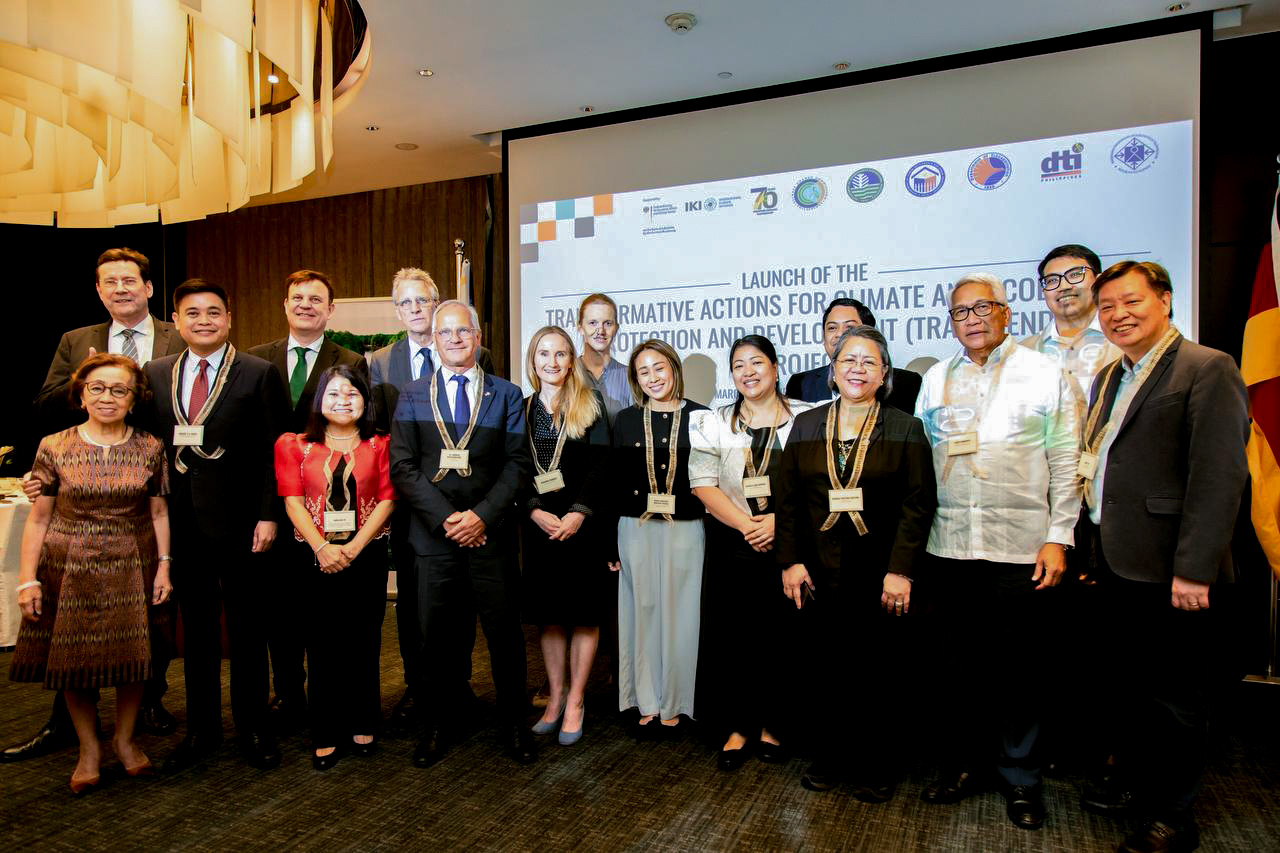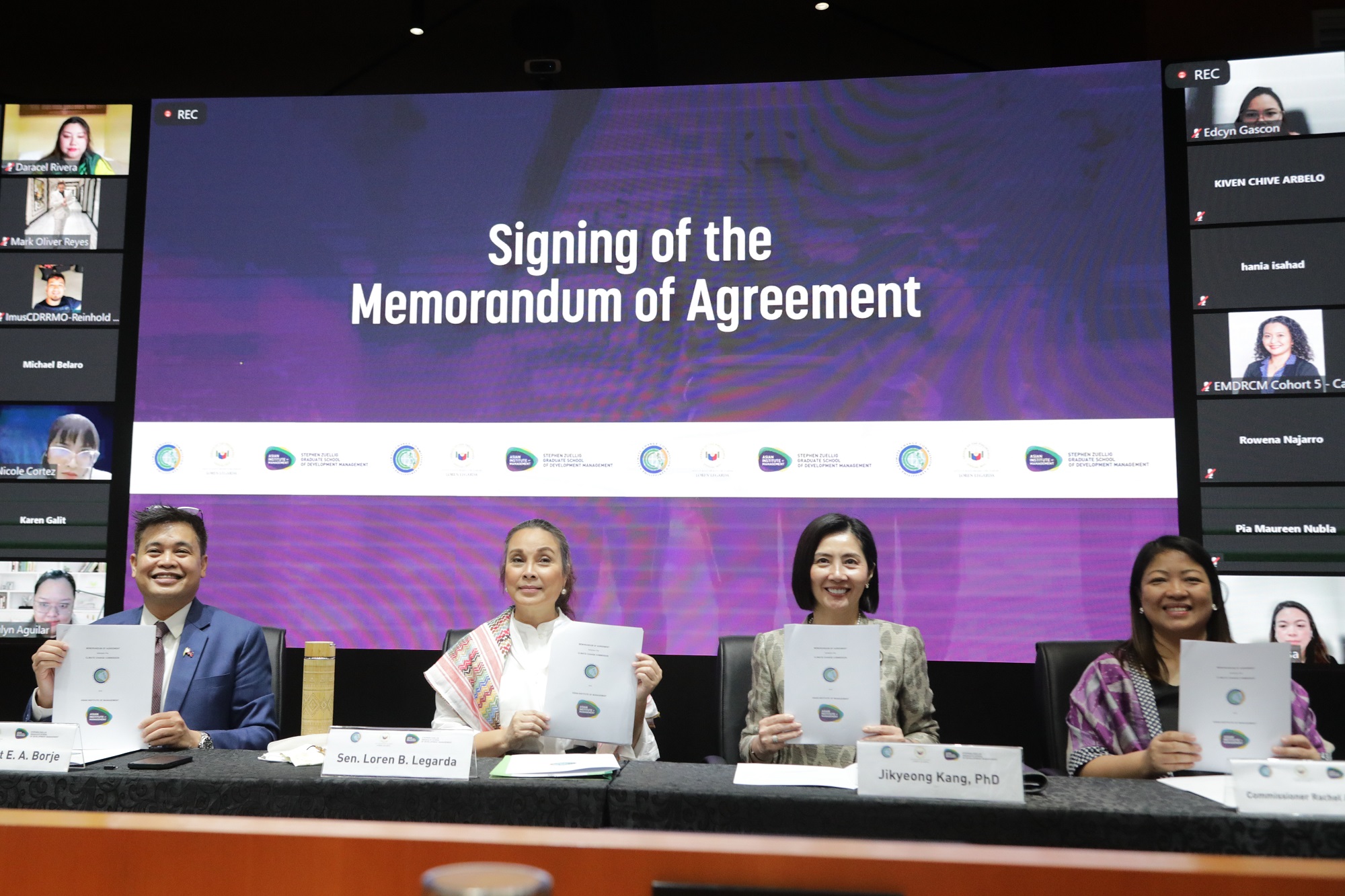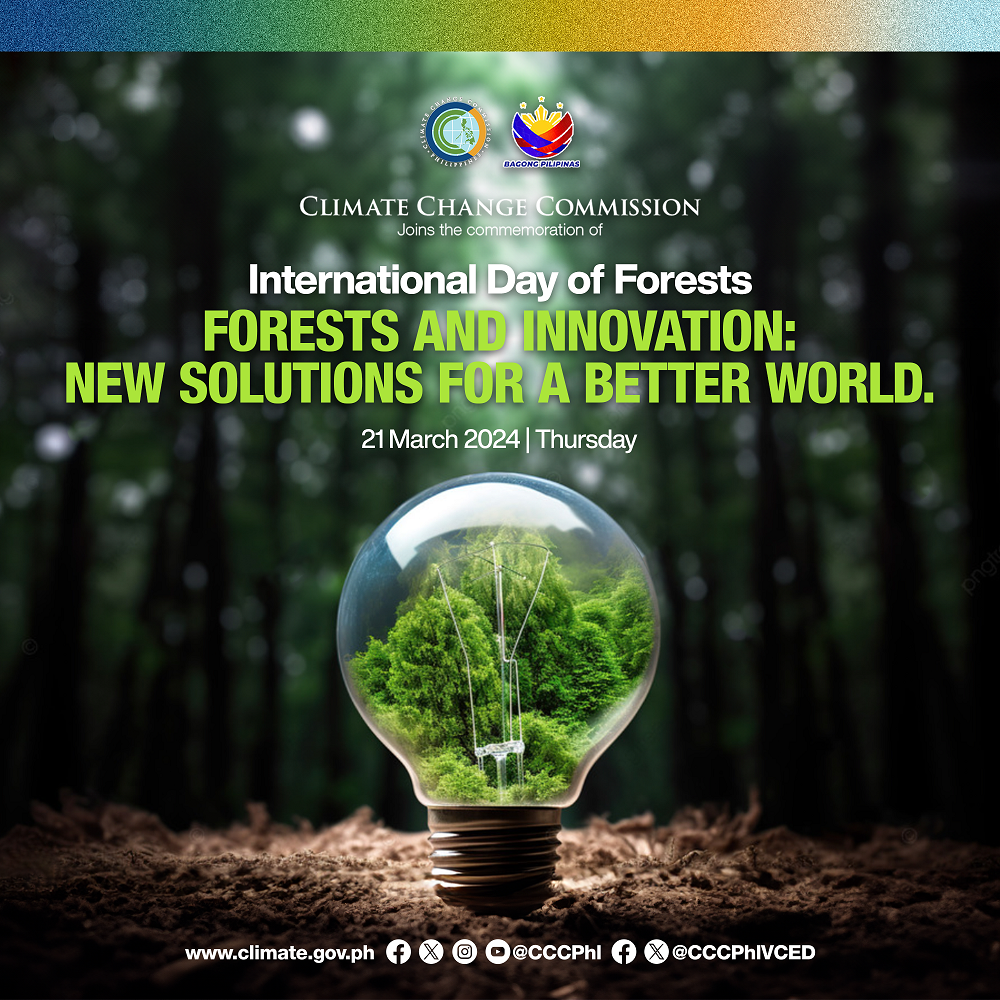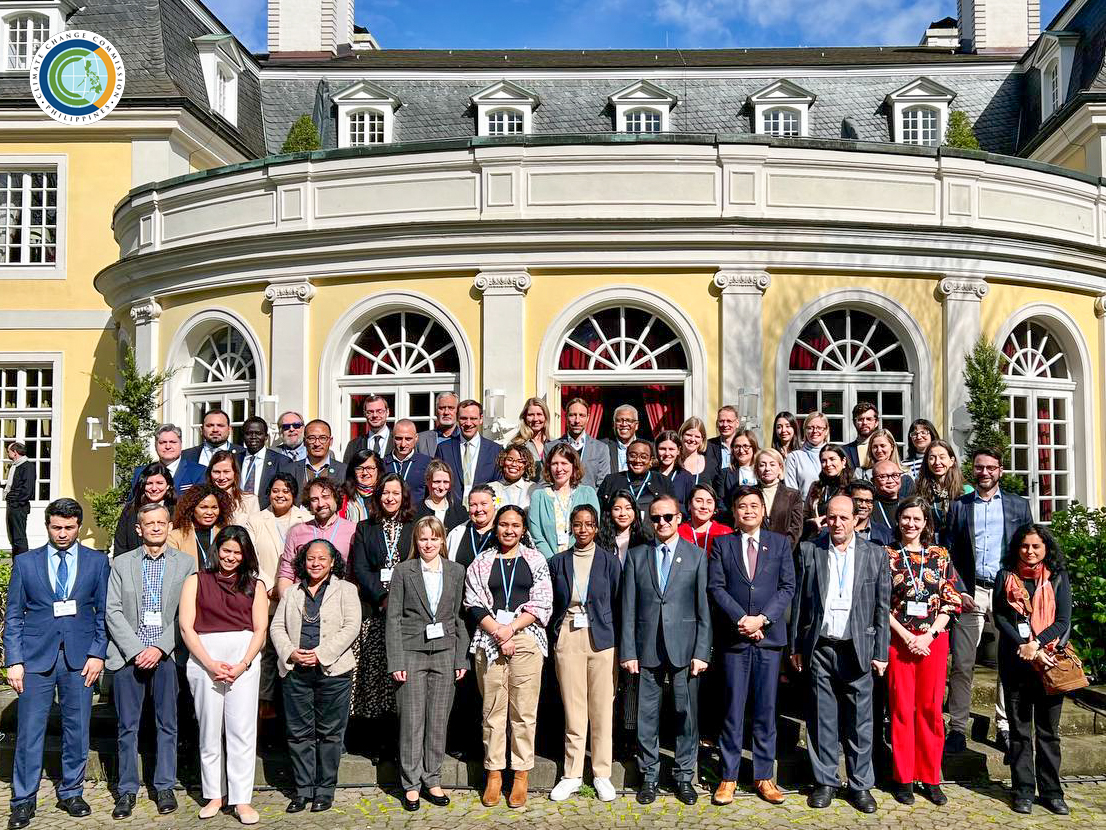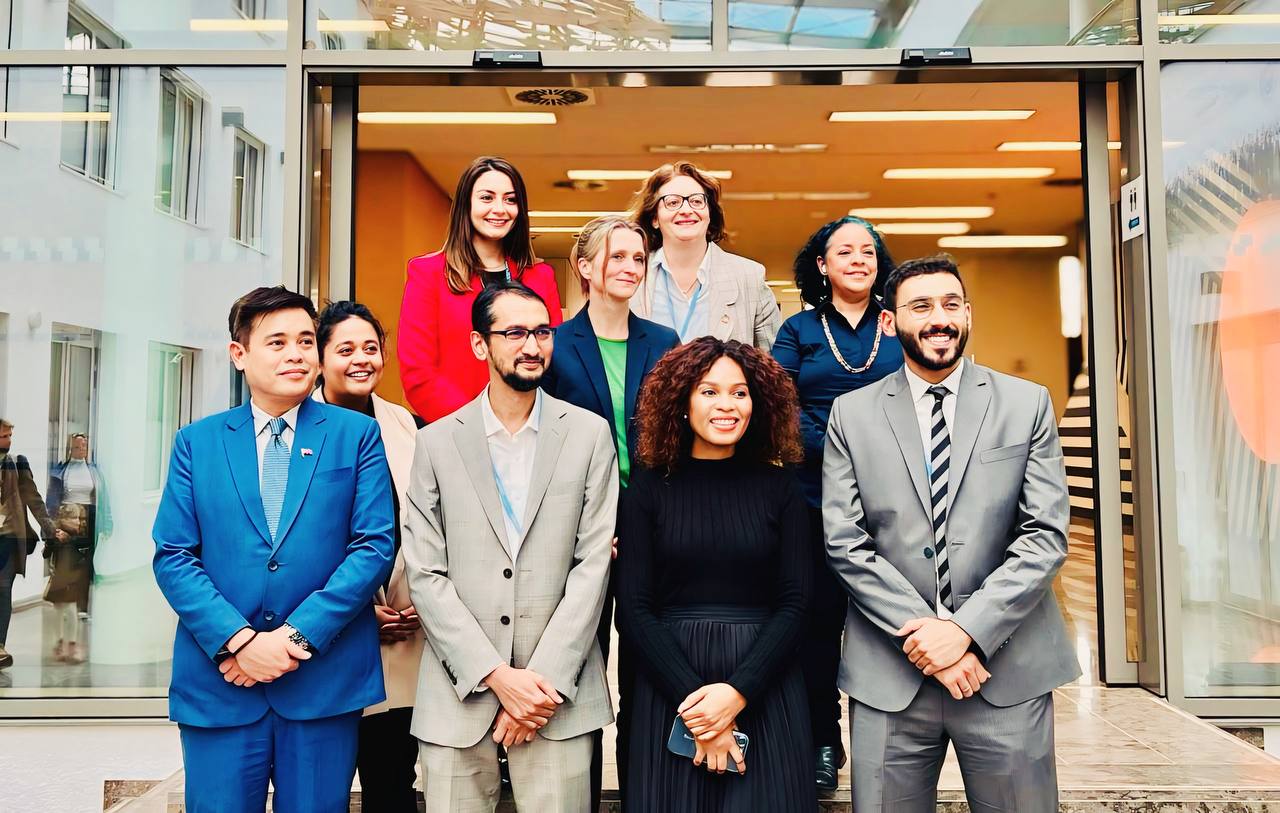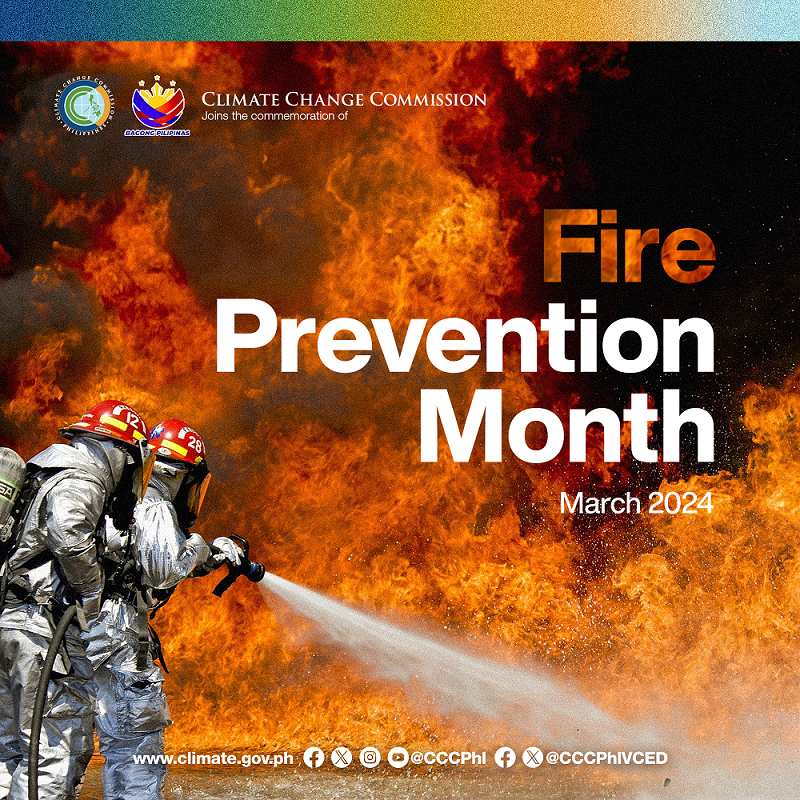MANILA, 25 April 2024 — Throughout modern history, a silent yet pressing crisis continues to unfold: the pervasive infiltration of plastic pollution on the Earth's ecosystems. As we observe Earth Month this year with the theme "Planet vs. Plastics," the urgent need to protect our only home from the perils of plastic waste calls for immediate action.
"Plastic pollution poses a grave threat to our ecosystems, endangering the delicate balance of life on Earth," said Secretary Robert E.A. Borje, Vice Chairperson and Executive Director of the Climate Change Commission.
Once teeming with pristine beauty and biodiversity, the Earth now bears the scars of human neglect and abuse. Plastic debris mars its landscapes from the depths of the oceans to the peaks of the mountains, a widespread pollution that threatens the intricate balance of life on our planet.
Plastics were first developed in the early 1900s and have become integral to many aspects of modern life since the 1940s. According to the United Nations, over 400 million tons of plastics are produced globally every year, equivalent to the weight of 39,603 Eiffel Towers altogether. Around the globe, 1 million plastic bottles are bought every minute, totaling 1.44 billion in a day.
In the Philippines, approximately 2.7 million tons of plastics are discarded annually, according to UN Development Programme and World Bank statistics. Data from the Department of Environment and Natural Resources (DENR) showed that of the estimated 61,000 metric tons of solid waste generated daily in the Philippines, up to 24 percent is plastic, composed mostly of consumer goods packaging, cutlery, and shopping bags.
Less than 10 percent of the plastics we discard actually get recycled; the rest gets dumped, incinerated, or mismanaged.
The ecological impacts of plastic pollution are significant and far-reaching, affecting everything from individual creatures to the overall health of our planet's ecosystems.
Plastic debris poses a significant threat to habitats, natural processes, and biodiversity, endangering numerous species such as seabirds, fish, turtles, and others. Animals that become entangled or ingest plastic suffer injuries, starvation, and death, disrupting food chains and weakening ecosystems.
Moreover, a considerable portion of the planet's marine species, including whales, dolphins, seals, sea turtles, and porpoises, have consumed plastic. This occurs because plastic debris can resemble seagrass, squid, or other prey, leading marine mammals, including herbivores like dugongs, to mistakenly ingest it.
The World Wide Fund for Nature (WWF) reported that 81 out of 123 marine mammal species have ingested or become entangled in plastic, resulting in the deaths of 100,000 marine mammals annually.
Plastics also leach harmful chemicals into our ecosystems, contaminating water and soil, which can harm wildlife and potentially make their way into the food chain, affecting human health as well. The United Nations Environment Programme estimated that each person on the planet ingests around 50,000 microplastics, consisting of tiny plastic particles less than 5 millimeters in diameter, annually, often through our drinking water.
Plastics are typically produced from raw materials such as petroleum, natural gas, and other chemicals derived from fossil fuels, contributing to greenhouse gas emissions that drive climate change. UN data revealed that annually, 17 million barrels of petroleum are utilized for plastic production, alongside 13 million tons of plastic leaking into the ocean.
Plastic bottles, cellophane and other common types of plastic emit methane and ethylene upon exposure to ambient solar radiation, whether in wet or dry environments. These potent greenhouse gases contribute to the steadily rising global temperatures, exacerbating the impacts of climate change.
Yet amid this ecological challenge, a glimmer of hope arises – the collective determination and commitment of communities to combat plastic pollution and restore our planet's health. From grassroots advocates to champions of sustainability, people are stepping forward, initiating change and inspiring others to join the quest for a cleaner, greener future.
Dedicated individuals and organizations have taken up the mantle of ecological stewardship, embarking on conservation initiatives and grassroots movements to combat plastic pollution. Their endeavors underscore the transformative power of community engagement in nurturing a culture of ecological responsibility.
In many coastal communities in the Philippines, local fishermen have partnered with non-governmental organizations and private companies to clean up plastic waste from their shores, safeguarding crucial marine habitats and securing the sustainability of their livelihoods. Meanwhile, in urban centers such as Metro Manila and Davao City, innovative entrepreneurs are leading the way in recycling and developing biodegradable alternatives to single-use plastics, providing sustainable solutions to the prevalent issue of plastic pollution.
“However, the battle against plastic pollution extends far beyond the realm of advocacy; it requires a paradigm shift in our societal norms and consumer behaviors. As we strive to transcend the Planet vs. Plastics narrative, we must embrace sustainable practices that minimize our reliance on plastic materials while maximizing the preservation of our natural resources, “ Borje emphasized.
“From recycling and responsible consumption to the development of biodegradable alternatives, every action, no matter how small, contributes to the collective effort to protect our planet's future," he added.
Borje said that while governments play a pivotal role in enacting policies that promote ecological sustainability, “it is the collective responsibility of individuals to embrace these principles in their daily lives. By integrating sustainable practices into our daily routines, we empower ourselves to become stewards of the planet.”
"As we reflect on Earth Month's significance, let us recommit to ecological conservation and climate resilience, forging a path to a healthier planet. Together, let us unite to safeguard our lives, livelihoods, and future amid climate change challenges," he urged.
"The fate of our planet is in our hands. Let us rise to the challenge and embark on this journey to a sustainable future, guided by unwavering resolve to preserve it for ourselves and future generations," Borje concluded.
For more information on the CCC’s climate mainstreaming activities, visit www.climate.gov.ph and www.facebook.com/CCCPhl.
April 25, 2024 Thursday

